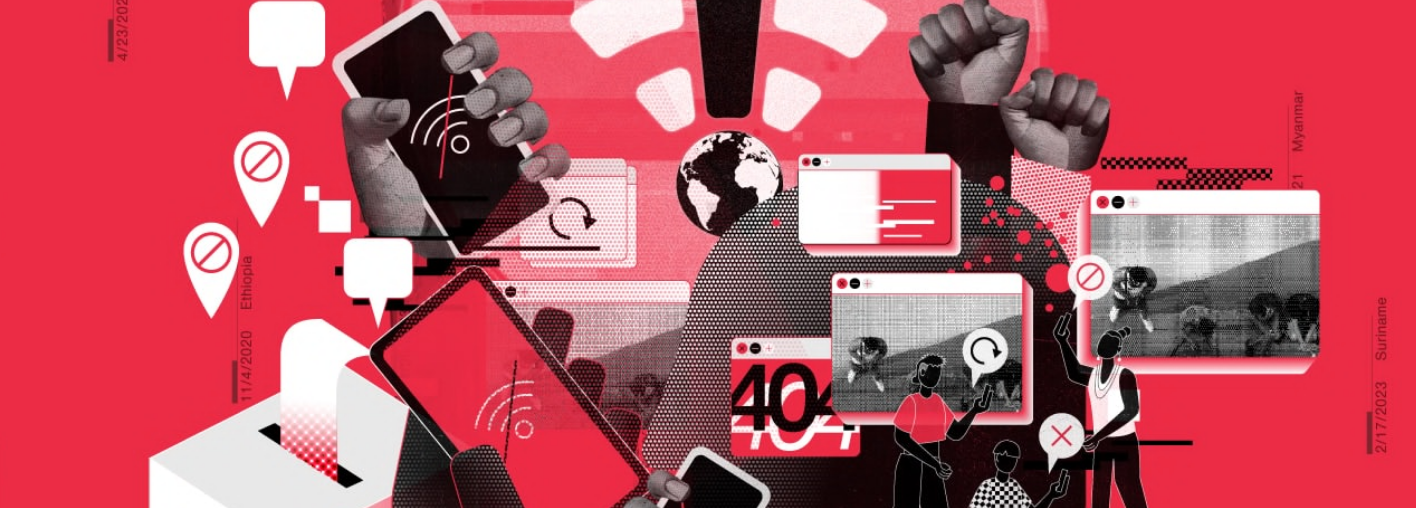Within this chronicle, a particular incident in Manipur, India, casts a shadow of profound dismay. Lasting an astonishing 212 days, the edict from the state’s governance, mandating the cessation of broadband and mobile connectivity through 44 successive decrees, enveloped a populace of 3.2 million in a cloak of digital darkness. This suspension of cyber access exacerbated the challenge of documenting the heinous acts perpetrated during the brutal conflict between the Meitei and Kuki-Zo factions, a strife marred by the specters of murder, sexual assault, incendiarism, and other forms of gender-based brutality, as reported by Access Now, a sentinel of digital liberties that annually disseminates a compendium of global internet shutdowns.
The saga of Manipur represents merely one facet of a broader phenomenon, as underscored in the most recent communiqué from Access Now, released on May 15. India, for the sixth consecutive year, stands at the vanguard of nations resorting to this tactic, imposing 116 instances of internet moratoriums in 2023 alone.
Moreover, the narrative paints 2023 as the acme of such disruptions on a global scale, tallying a staggering 283 instances across 39 nations—an unprecedented zenith since surveillance commenced in 2016. This marks a precipitous surge of 41% from the preceding year’s count of 201 shutdowns across 40 countries, and a 28% ascent from the benchmark set in 2019.
“In virtually every dimension, 2023 stands as the apogee of internet shutdowns—a disquieting trend portending dire implications for human liberties,” attests the report.
Of the 283 shutdowns, 173 transpired in zones rent asunder by conflict, mirroring acts of violence. In the Gaza Strip, for instance, the Israeli military wielded a combination of direct assaults on civilian telecommunications infrastructure, constraints on power access, and technical disruptions to ensnare the web in its snare. In a rejoinder to TIME, the IDF asserted its endeavor to ameliorate the infrastructure in regions scarred by strife, cooperating with local entities for the restoration of normalcy.
In Ethiopia’s Amhara region, security apparatuses orchestrated a near-comprehensive blackout to sow panic and mass exodus through wanton destruction and indiscriminate bombardment.
The report sheds light on a disconcerting trend wherein shutdowns, ostensibly deployed to maintain peace during protests and periods of political turbulence, are increasingly wielded as instruments of suppression. In nine nations, including Palestine, Myanmar, Sudan, and Ukraine, belligerent factions invoked such measures purportedly to restore tranquility. In India, authorities invoked shutdowns on 65 occasions in 2023, ostensibly to quell communal strife. Similarly, Pakistan and Bangladesh each resorted to this tactic seven and three times, respectively, purportedly to stifle dissent during political gatherings and electoral campaigns.
Of gravest concern is the clandestine nature of these actions, with a staggering 93% executed without prior notification to the populace—a practice exacerbating fear and uncertainty while imperiling countless lives.
“This juncture serves as an urgent summons: stakeholders worldwide—governments, civil society, and corporate entities alike—must heed the clarion call to permanently abolish internet shutdowns,” implores Zach Rosson, a data analyst at Access Now.
This article was originally published on time. Read the orignal article.
FAQs
- What are internet shutdowns? Internet shutdowns refer to deliberate actions by governments or authorities to restrict access to the internet, usually within a specific geographical area or during particular events.
- Why do governments impose internet shutdowns? Governments often justify internet shutdowns as measures to maintain public order, national security, or to curb the spread of misinformation. However, they are frequently used to suppress dissent and stifle communication.
- What are the consequences of internet shutdowns? Internet shutdowns can have severe consequences, including hindering access to information, disrupting essential services, impeding economic activities, and violating human rights such as freedom of expression and access to information.
- How can individuals and organizations respond to internet shutdowns? Individuals and organizations can respond to internet shutdowns by advocating for transparency, accountability, and respect for human rights. They can also support initiatives that provide circumvention tools and assistance to affected communities.
- What is the role of international organizations in addressing internet shutdowns? International organizations play a crucial role in raising awareness about internet shutdowns, documenting violations, and advocating for policies that safeguard digital rights and freedoms.
